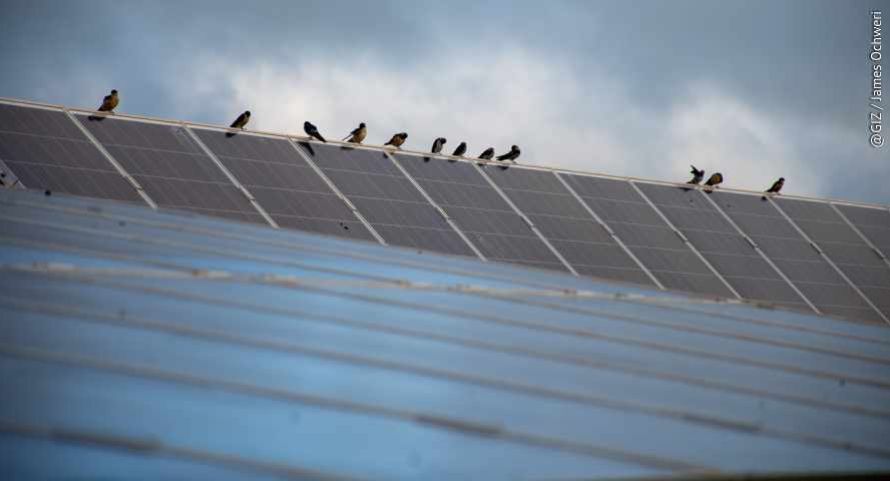Secure energy for health center through solar hybrid system

The challenge
There are almost 7,000 health facilities and hospitals in Uganda, but most are located in rural areas, without access to the main power grid. Those that are connected cannot rely on the supply because the electricity regularly fails. For patients, this means there is additional risk during operations and treatments. For hospitals,the unreliable supply of electricty means by higher costs because they are forced to operate additional diesel generators. The CoRSU Rehabilitation Hospital in the center of Kampala, which treats children and young people with disabilities, also suffers from the unstable power supply.
The goal
With its six operating rooms alone, its specialized wards, and a rehabilitation center, CoRSU is needs a secure power supply to ensure the best possible services for its patients, and the continuous supply of electricity when it is needed most: surgical operations. The idea of becoming completely self-sufficient with the help of a photovoltaic (PV) system and associated battery system sounds good, but it is ultimately uneconomical and therefore unsustainable for a hospital. That’s why CoRSU has opted for a hybrid solution that combines multiple energy sources. In this way, CoRSU hopes to safeguard its medical operations and save electricity costs of up to 27,000 euros annually, as well as around 42 tons of CO2. This pilot project could also serve lessons for other hospitals in similar contexts.
Our partner
The CoRSU Rehabilitation Hospital was founded in 2006 as a private non-profit, non-governmental organization, and has been operating a modern orthopedic clinic in Kisubi, near the capital Kampala, since 2009. Approximately 160 employees care for children and young people with various disabilities from across Uganda and its neighboring countries. CoRSU provides them with preventive, curative and rehabilitative treatments. The German Christoffel Blindenmission (cbm) has supported CoRSU since its founding phase.
The approach
The planned hybrid solar system will consist of four power sources: 1) solar power will be generated via the hospital’s own PV system, that is 2) stored in a battery system when there is a surplus; 3) a connection to the national power grid; and 4) in an emergency, the hospital can also rely on diesel generators.
An intelligent power control system selects the most cost-effective power source at any time of day. During the day, the battery charges surplus PV power, which can then be used at night – for up to four hours. With this intentional system, CoRSU can meet about 60 percent of its needs and reduce diesel consumption. The life of the system is more than 20 years.
To operate the plant sustainably, three CoRSU technicians are being trained at the Nakawa Vocational Training Institute to operate, manage and maintain the plant independently. In addition to switching to clean energy sources, efficient use of existing energy is an important sustainability component. To this end, 17 hospital employees from all key departments are being trained to change their behavior accordingly.
In addition, CoRSU commits to organize three workshops during the project period. The goal: to promote the use of clean renewable energy sources in Ugandan healthcare facilities.
Kampala
Solar Energy
Health care facility and patients
02/2022 – 06/2023



